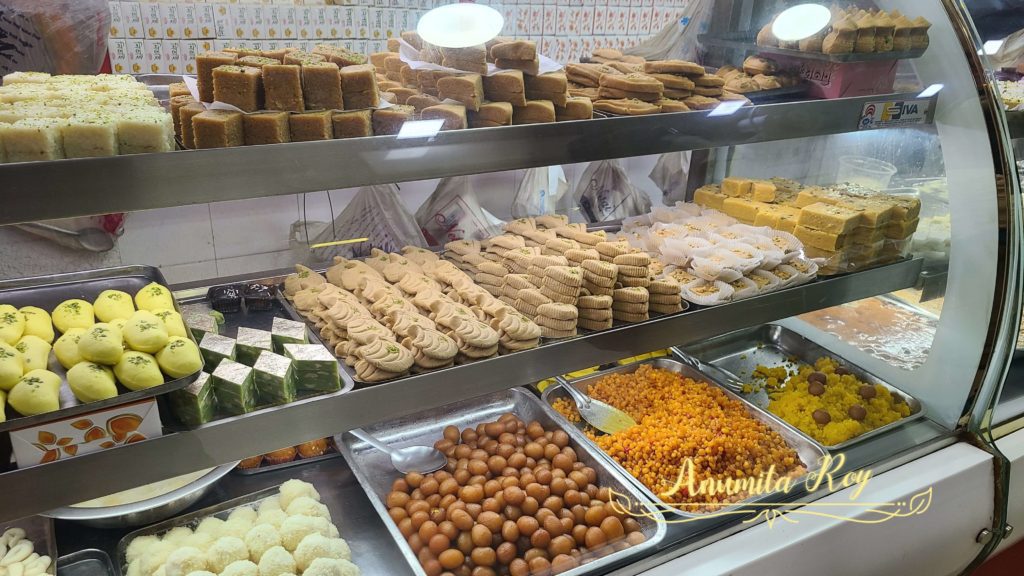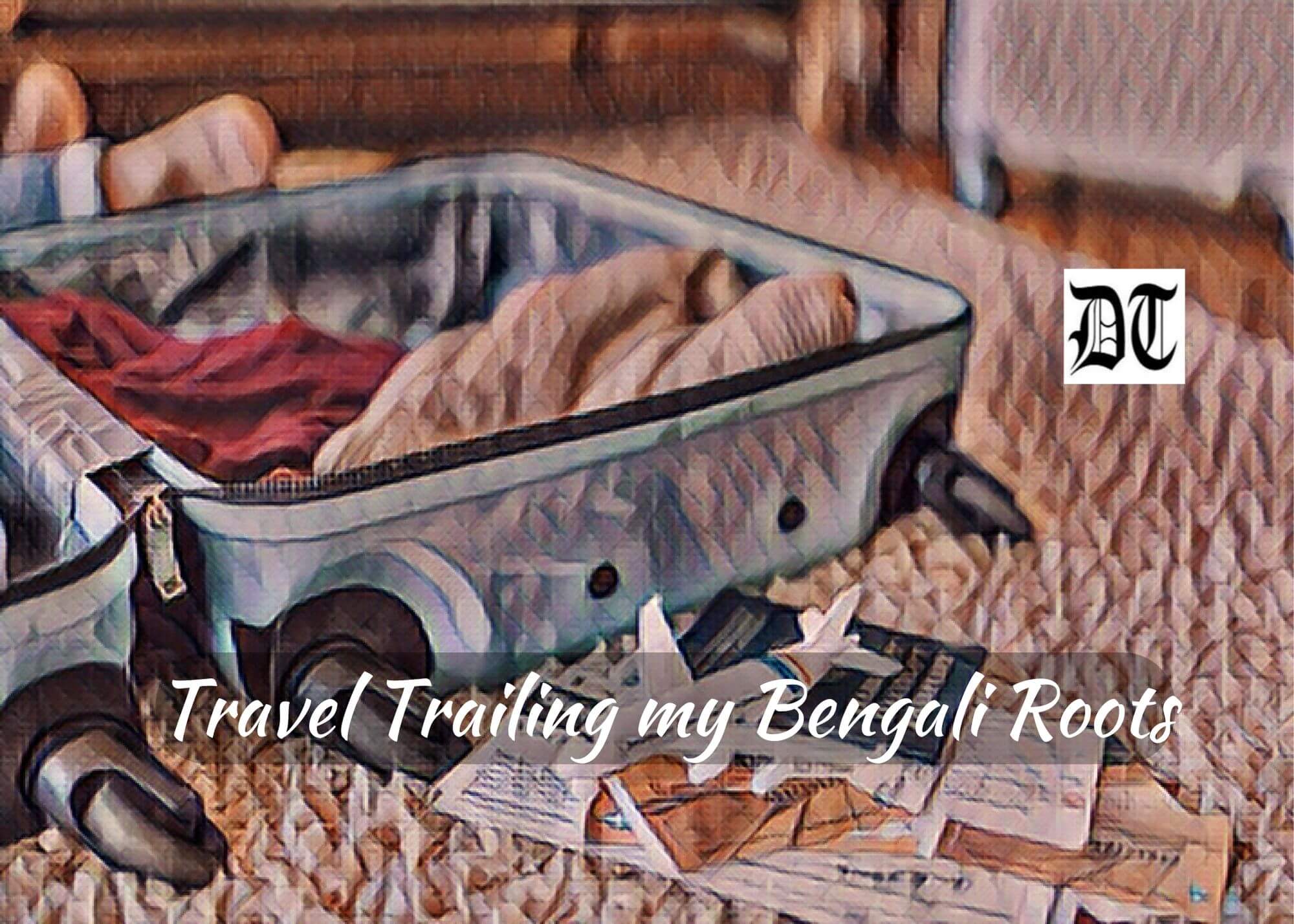Reading Time: 6 minutes
Dr. Roopali rediscovers her Bengali roots not only in Kolkata but in distant lands, the UK and the US, meeting kins in weddings and other festive occasions. An exclusive for Different Truths.

Journeys are made in heaven, they say.
My unpacked baggage was packed again for yet another flight. A jet-lagged body dragged itself to leave exactly twenty-four hours later for another destination.
The scruffy smelly fella who tried snoozing on my shoulder snorted in his sleep all the way from Washington DC to New Delhi. He was off to Dharamshala. The Buddhist haven.
I was positive he was going there to smoke some stuff in his peace pipe.
Kolkata, for known and unknown reasons is a city one cannot forget. And for that you need not be a Bengali at all!
But this time I was to journey to the famed city of Calcutta, now Kolkata. The “ladies of Calcutta” was a popular song dad often hummed. Sometime later it began to be called the City of Joy. Kolkata, for known and unknown reasons is a city one cannot forget. And for that you need not be a Bengali at all!
My father spoke often of the city of his birth. A city called Dhaka situated on the banks of the river Buriganga. Memories of its Venice like canals and its revolutionary poets and writers kept him awake at night. Bolpur, with its ghosts and dayeen and silhouetted date palm trees made for my childhood memories.
And then as a military spouse a place called Kanchrapara – not far from Kolkata. I remember, the Lalgola Express rushing past at 5 pm every day. With clockwork precision. The 6 am market with its struggling crabs tied together, heaps of freshly farmed shrimp, and the inevitably slippery pui shaak greens, pumpkin and ribbed gourd always come to mind.
The day I flew home from the United States, a multicultural Bengali wedding was being curated at a friend’s house.
The day I flew home from the United States, a multicultural Bengali wedding was being curated at a friend’s house. Born in the United States to immigrant Bengali parents, the bride spoke no Bangla.
The groom was from Punjab, and bhangra dancing was for sure on the programme. The bride would wear a traditional Bengali saree, the soles of her feet painted red with aalta dye. On her head would be a tiara made of sholapith, a plant-based, cork like substance. Her male cousins and uncles would carry her to the wedding mandap platform, perched on a peera (flat stool).
And now, here I was in Kolkata, dancing to Bollywood songs at a Bengali wedding! The bride not wearing the traditional Bengali sari, but a lehenga dress from the western Indian state of Rajasthan!
Bengali hospitality began for us with a cozy, clean hotel with a bustling mishti (sweet) shop next door.
Bengali hospitality began for us with a cozy, clean hotel with a bustling mishti (sweet) shop next door. Each morning, the shop sent up plates filled with the popular Bengali milk sweet Sandesh and vegetable cutlets. At night the wedding feast, the music and the joy and warmth of the hosts and the guests, had us making new memories.

I think we Bengalis are foodies by birth. Our cuisine boasts dishes that take humble ingredients and transform them into gourmet delicacies.
I think we Bengalis are foodies by birth. Our cuisine boasts dishes that take humble ingredients and transform them into gourmet delicacies. Be it the simple pumpkin flower or the stamen collected from the flower of the banana tree. We have discovered it all. And we have invented a cuisine around it. For instance, the Muri Ghonto where the head of the freshwater Rahu fish is fried and cooked with rice and potatoes.
The mustard paste, the nigella seed, the five spice paanch phoron, the emerald-green chilli pepper, bay leaf, the cumin seed and turmeric are non-negotiable when it comes to Bengali cuisine. Even the Bengali diaspora across the seven seas craves this. South Asian grocery stories come well-stocked with these essentials. In fact, some Bangladeshi-owned shops even fly over the delectable Ileesh Hilsa fish from the River Padma back home to cities on the banks of the Potomac and the Mississippi Rivers!
Through London to America, I met and stayed with the diasporic Bengali. My cousins left India more than half a century ago to live and work in London. They are unique in their amalgamation of the best of both cultures.
Born in Dhaka, raised in Karachi, educated in Lahore, residents of Kanpur in India, and living for decades in England they are Bengali and British. Highly educated and philosophical they have retained and rejected their Bengali culture. Yet as they grow older, I see their foremothers and forefathers reflected in the subtle longing of their words. Sadly, there is no going back.
A young relative, a physician born in the United Kingdom is a self-made millionaire entrepreneur.
A young relative, a physician born in the United Kingdom is a self-made millionaire entrepreneur. She collects Ferraris and owns a super swank London apartment overlooking the River Thames. It tells of the success of a new generation of Bengalis who don’t need to send any money “home.”
But then home is not geographically defined. Her birth and her strong British accent may free her from immediate identity. Yet growing up in a Bangladeshi household in Wales roots her in the cultural consciousness of being a Bengali.
The daughter of conservative Muslim parents from Bangladesh, the quintessential qualities of hospitality, caring and respect are part and parcel of her personality. She resonated what I was witnessing here in this City of Joy, whose walls are crumbly, and the paint all chipped.
A friend who graduated from a renowned radical university in New Delhi now lives in conservative scholarly Cambridge.
A friend who graduated from a renowned radical university in New Delhi now lives in conservative scholarly Cambridge. She had welcomed us with mouthwatering cinnamon and cardamom flavoured Mangshor Jhool (mutton curry) and Bhaat (boiled white rice). Quintessential Bengali comfort food!
Her house filled with India. Carved statues of deities, conch shells and rugs, bells, and incense holders. She moves between New Delhi and Cambridge frequently and fluidly, retaining her “Bengali Self.” Her little boy born a British citizen was initiated into the coming-of-age Upanayana – an elaborate thread ceremony – compulsory for all Brahmin males. Now forever Bengali.
At a formal sit-down dinner at a conference at Cambridge University I met a group of Bengali scholars from Dhaka University in Bangladesh. For me it was a distant homecoming. We sang together the patriotic Bangla song, “Aamar jonmobhumi” – The Land of my Birth – My Motherland. Some years later, my daughter would sing it at an international gathering in Japan.
In The Lost History of Bengali Harlem Michaela Stone Cross writes of turn of the century Bengali immigration to the United States…
In The Lost History of Bengali Harlem Michaela Stone Cross writes of turn of the century Bengali immigration to the United States, “Bengali language, culture, and practices largely disappeared from these communities; children would take on the culture and religion of their mothers, and their mothers’ extended families. But echoes of the subcontinent sprung up occasionally, causing descendants to investigate. “Those genes are strong,” said Sydney Magruder Washington, the 28-year-old great-granddaughter of a Bengali immigrant. “My mother and her sisters all married Black guys, but all of us cousins are light-skinned, with that dark, long hair.”
Perhaps because of the proximity to Harlem that Stone Cross talks about, I found the state of New Jersey in the United States to have a sizeable number of Bengalis. Doctors, engineers, professors, and other skilled professionals they came in the 1960s and 70s seeking a better financial life. They had no great desire to fulfil the Great American Dream. A well-paid dignified job, a house, a car, and a good education for the children who were Born in America. For them they dreamed big. Princeton, Harvard, Yale, Cornell, MIT. If the kids went to Ivy League institutions, or even to any other top tier college, the parents would have bragging rights in the local Bengali community.
The Bengali diaspora orchestrates annual Durga Puja and Saraswati Puja community worship events…
The Bengali diaspora orchestrates annual Durga Puja and Saraswati Puja community worship events to invoke and be blessed by the avatars of the Mother Goddess. They do this with as much longing and fervour as they would have back home. The nostalgic sound of the dhaak drum resounding in their memories. They have not forgotten their goddesses. As first-generation Bengali immigrants they are unable to shed the strong Bangla flavour from their American English. The children however, born in the U.S.A, as Springsteen would sing, carry no linguistic influences.
The kids are learning to bake puddings and pies and cookies and cakes and have somewhere lost the Sandesh and the soft white syrupy Rosogolla.
That is inevitable. Their parents visit India every other year to see their ageing parents, and to introduce their sulky, now, teenagers to Bengali culture.
Washington DC revived my Bengali heritage.
Washington DC revived my Bengali heritage. A serious colonial upbringing had not deprived me of Saraswati Puja to invoke the Deity of Learning. Conducted by my father, the brown sahib himself. Education and learning and food are a Bengali obsession.
So off we went to the puja site at a high school in suburban Virginia! I had my American son-in-law in tow. A professor, I could lure him by tales I spun of the Goddess and her blessings. Meanwhile the non-Bengali initiated spouse at aaloor dom (spiced potato curry) with loochi (fried bread) with gusto!
Bemused I watched the son-in-law stand with folded hands before the Goddess of Learning.
Visuals by Different Truths and Picture by Anumita Roy

















It’s always insightful and delightful reading you ma’am